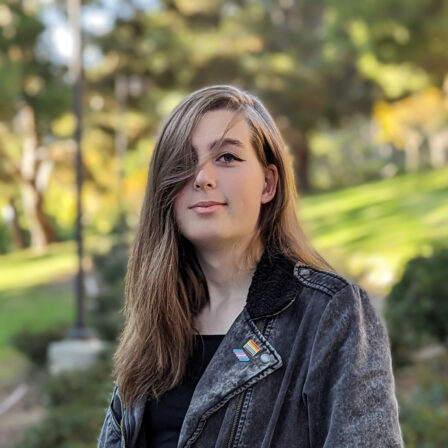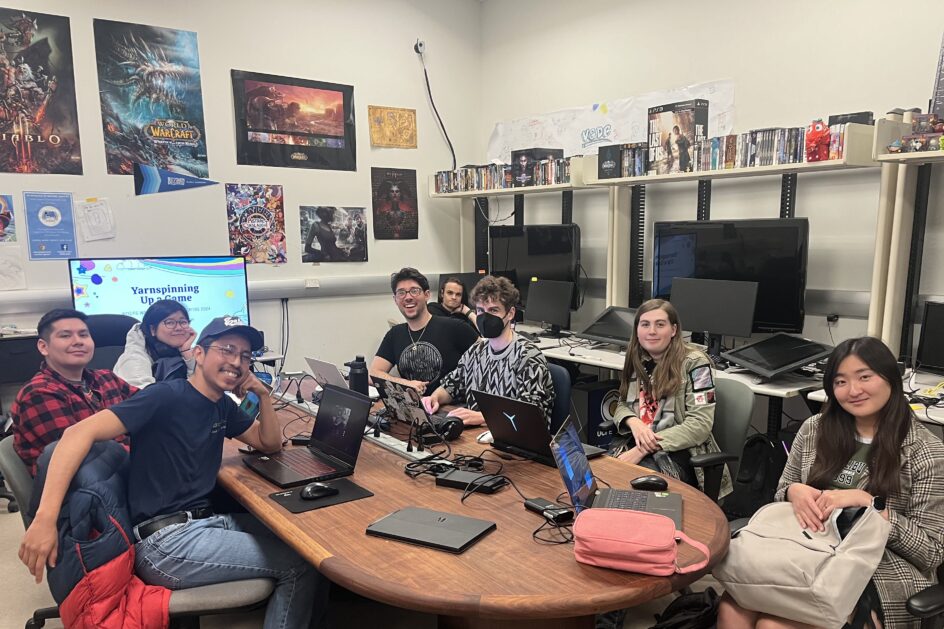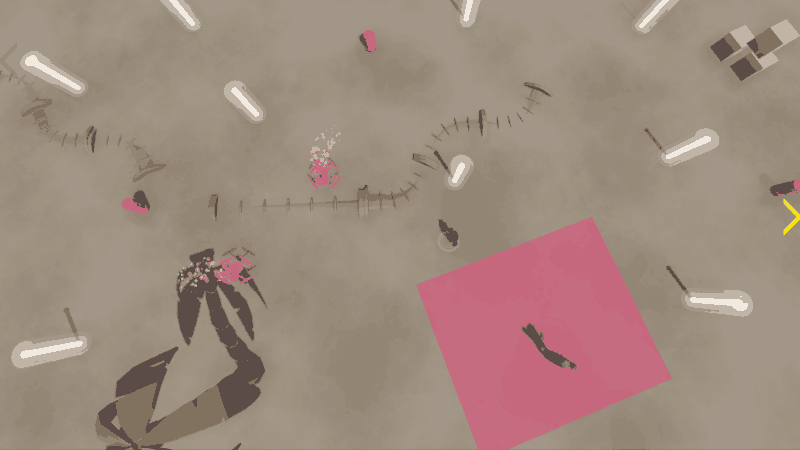Senior Spotlight: Introducing Indie Game Developer Sam Hansen

As far back as Sam Hansen can remember, she has been creating games. She then furthered that passion as a computer science major in UC Irvine’s Donald Bren School of Information and Computer Sciences (ICS), serving as programming officer for the Video Game Development Club (VGDC). She was also president of the Cyber@UCI club, and she has helped design novel input devices to provide gaming experiences to players with low vision. Now, as she prepares to graduate, the indie game developer is working to release her first commercial game later this year, building on skills she learned both in and out of the classroom here at UCI.
When did you realize you wanted to turn your passion for gaming into a career?
As far as I can remember, I’ve been coming up with my own ideas for games, so I always kind of knew I wanted to go into whatever field would let me make games. My dad works in the tech industry, and when I was in elementary or middle school, he suggested I learn how to code. I started using online resources to learn and I never really stopped. It’s always been one of my main interests and I’m still pursuing it now.
What led you to UCI to study computer science?
UCI was one of the few schools that had a good game design program, which was Computer Game Science when I applied [the major is now Game Design & Interactive Media (GDIM)], and then I ended up transferring into computer science later on because I enjoyed some of the more technical classes. UCI wasn’t my first choice, but out of the universities I was accepted into, the computer science program and campus were the deciding factors. I had been on a campus tour during high school, and I remembered really liking the campus. Looking back, I’m quite glad I didn’t get into my first-choice school, because attending UCI has changed my life for the better.
Looking back, I’m quite glad I didn’t get into my first-choice school, because attending UCI has changed my life for the better.
Have you had a favorite class or professor at UCI?
One of my favorite classes has been GDIM 139, taught by Darryl Despie. It’s a really fun class, specifically targeted to a lot of my interests, and Darryl is a great lecturer. Other than that, I’ve really liked the project and lab-based classes, where I could actually use my programming knowledge. As for professors, I’ve had quite a few that I really like. Professors who love and are invested in the course topic are usually the best. Alex Thornton, Mark Baldwin, Michael Goodrich, and Andre van der Hoek were all amazing lecturers, and I loved their classes. Many friends of mine have enjoyed Michael Shindler’s classes, but unfortunately I never had the chance to take any of them.
Can you talk about your involvement with Cyber@UCI and VGDC?
Cyber and VGDC were one of the most important parts of my time here at UCI. Extracurriculars are vitally important at a university. They allow you to learn skills that might not be taught in classes. They can let you find a hobby and a community of friends. Participating in, and later helping to organize, club events and workshops with both clubs really gave me a “place” here at UCI. I’m excited to see where the new boards take the clubs.

Can you also talk about your research into gaming for impaired players?
Starting at the end of my first year, a few friends and I started working with one of our professors, Mark Baldwin. Initially the idea was to design novel input devices to provide gaming experiences to players with low vision and to allow play with people using traditional input devices. We went through a bunch of different ideas about novel physical ways of controlling games, and we also found that it could also be used as a therapeutic tool for players with low motor ability as well. We’ve been developing in this direction recently, making modifications to our devices to accommodate different levels of motor function.
What are your future plans?
Currently I’m working on my own personal game project. My goal is to release this as my first commercial game as a solo indie developer later this year. I’m really excited about this project and with my current timeline, I’ll hopefully be releasing the game in November. Long term, I would love to stay as an indie developer, making the games that I find compelling. I’m also open to working at larger triple A companies in the future.
Do you have any advice for prospective ICS students?
The most important thing, in my opinion, is having a community outside of classes. Student organizations and clubs have been the highlight of my time here at UCI. Finding an industry/hobby club such as Cyber or VGDC will let you learn more about your interests and find like-minded people who can end up as some of your best friends in college and afterwards. It’s the same thing for more social clubs like Tabletop Gaming. Find something to do and attend outside of your courses.

Can you also speak to the need for better LGBTQ+ representation in tech?
Here at UCI and in the clubs I’ve joined, everyone has been super supportive. At VGDC, we have a bunch of queer officers and members, and luckily I was able to find a really great community. In tech as a whole, there are a ton of queer developers, but unfortunately the industry has historical-ly not been vocally supportive or representative of LGBTQ+ people. In recent years it’s been get-ting better, but sometimes it can feel very corporate or ingenuine. We need more queer-led and authentic representation in the industry. As an indie game developer, I really want to create LGBTQ+ games with good representation.
— Shani Murray